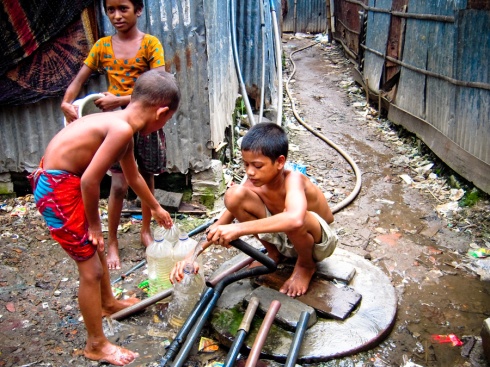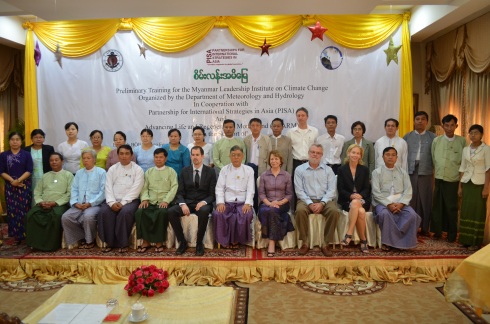
By Leeann Ji, PISA Staff Assistant, March 22nd, 2017
In 1993, the United Nations General Assembly designated March 22 as “World Water Day”, a day dedicated to initiating dialogue over the global water crisis. While this year the focus is on wastewater, it is important for the world to continue to address the issues surrounding access to clean water and water security. As the lifeline of humanity, water is a sacred resource, but it is finite. It is imperative that governments and society recognize and take action to ameliorate the current shortage in the global water supply, which threatens national security and our very existence.
About 1 out of 9 people in the world lack access to safe water. Using contaminated water sources gives rise to various preventable diseases that often lead to death; it is estimated that about 3.5 million people die every year due to inadequate water supply. This can be attributed to the improper treatment of wastewater and most importantly, climate change. As global temperatures rise, so do natural disasters: dry regions become drier, wet regions become wetter.Droughts and floods deal catastrophic blows to societies and to agriculture, and international cooperation to combat climate change could help to alleviate natural disasters. The Paris Agreement (COP21) and the Sustainable Development Goals are landmark international agreements that demand the full-cooperation of signatory states in order to successfully protect the environment and the global water supply. As one of the top emitters of pollutionand a signatory to the Paris Agreement, the United States has a moral and legal obligation to uphold its promise to tackle climate change. Regardless of the political decisions made by the government, it is vital for US citizens to carry on the fight against climate change.
The longer water security and climate change are ignored, the more irreversible the damage becomes. When thinking about the global water crisis this year on World Water Day, PISA asks our followers to consider sustainable solutions to the following questions:
Around the world, women and girls spend long hours fetching water for their homes, which has contributed in decreasing girls’ school attendance. How can an improvement in the water supply directly correlate with the empowerment of women and girls?
More and more regions are pegged to become inhabitable due to climate change and decreasing water supplies. How can national governments and the global community address potential migration patterns created by environmental issues?
Many nations do not have the resources to enact effective, sustainable solutions to increasing access to clean water. What can nations rich in these resources do to help bring clean water to affected areas?
As an organization dedicated to finding sustainable solutions to global issues, PISA believes in the importance of ensuring clean water access to communities around the world. Our Climate Change Initiative included our 2013 Myanmar Leadership Institute on Climate Change (MLICC), which trained government officials in sustainable solutions for preserving the environment and combating climate change. While we celebrate World Water Day today, PISA thinks about how our organization can further contribute efforts to clean water access and water security around the world — and we encourage you to do so, too.

